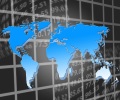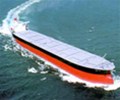World leaders pledge to redouble pandemic fight at special APEC meeting

Leaders of the Asia-Pacific trade group APEC, including U.S. President Joe Biden, Russia’s Vladimir Putin, and China’s Xi Jinping, pledged on Friday to work to expand sharing and manufacturing of COVID-19 vaccines to fight the global pandemic.
In a statement after a virtual meeting of the group chaired by New Zealand, the leaders, struggling to tame outbreaks that have been made worse by the Delta variant, said they would encourage the voluntary transfer of vaccine production technologies “on mutually agreed terms” as the region prepared for future health shocks. ID:nL1N2OS16Q
“The pandemic continues to have a devastating impact on our region’s people and economies,” they said in the joint statement. “We will only overcome this health emergency by accelerating equitable access to safe, effective, quality-assured, and affordable COVID-19 vaccines.”
The APEC leaders met virtually to discuss collective actions to navigate the COVID-19 pandemic and its economic impacts.
New Zealand, the revolving Asia-Pacific Economic Cooperation host, said this week it would chair the extraordinary meeting ahead of a formal gathering in November, the first time such an additional meeting has been held.
The meeting highlights growing concerns around COVID-19 which is raging in the region as countries including Indonesia, Thailand and Australia face new waves of infections.
New Zealand Prime Minister Jacinda Ardern stressed the importance of the 21-economy group working together to navigate a way out of the pandemic in a call with Biden ahead of the meeting.
Putin told the group that global barriers to vaccine production and deliveries needed to be removed, and Japanese Prime Minister Yoshihide Suga expressed his resolve to fellow leaders to hold a safe and secure Olympics.
Despite their show of resolve, there are tensions among APEC members, most notably between the West and China over the origins of the coronavirus, trade, Xinjiang, Hong Kong and the South China Sea.
A senior Biden administration official said the president planned to use the forum to demonstrate his commitment to a free and open Indo-Pacific.
“As one of the first opportunities he has to engage with many of these leaders, he will make clear that the U.S. has an enduring commitment to the region. He will put forward a vision for the region that is based on our values,” said the official.
The grouping includes the world’s three largest economies and impoverished nations such as Papua New Guinea, as well as members at vastly different points in the COVID-19 cycle, providing further challenges for building consensus.
That consensus model of APEC has been tested in recent years, with the group unable to agree on a communique at their 2018 meeting in Papua New Guinea, driven by differences between the United States, led by former President Donald Trump, and China.
The 2019 APEC meeting in Chile was cancelled due to protests while the one in Malaysia last year was side-tracked as officials hastily organised a virtual meeting as the pandemic locked down the world.
In June, APEC trade ministers agreed to review trade barriers and expedite the cross-border transit of COVID-19 vaccines and related goods, but stopped short of a broad commitment to remove tariffs which New Zealand was pushing for.
There have been over 50 million cases of COVID-19 within APEC’s borders, with over one million deaths. APEC-wide GDP contracted by 1.9% in 2020.
Source: Reuters (Additional Reporting by Jeff Mason and David Brunnstrom in Washington, Tom Allard in Jakarta, Yew Lun Tian in Beijing, Ben Blanchard in Taipei, Panu Wongcha-Um in Bangkok; Editing by Lincoln Feast and Nick Macfie)

 Hellenic Shipping News Worldwide Hellenic Shipping News Worldwide, Online Daily Newspaper on Hellenic and International Shipping
Hellenic Shipping News Worldwide Hellenic Shipping News Worldwide, Online Daily Newspaper on Hellenic and International Shipping





















 PG-Software
PG-Software